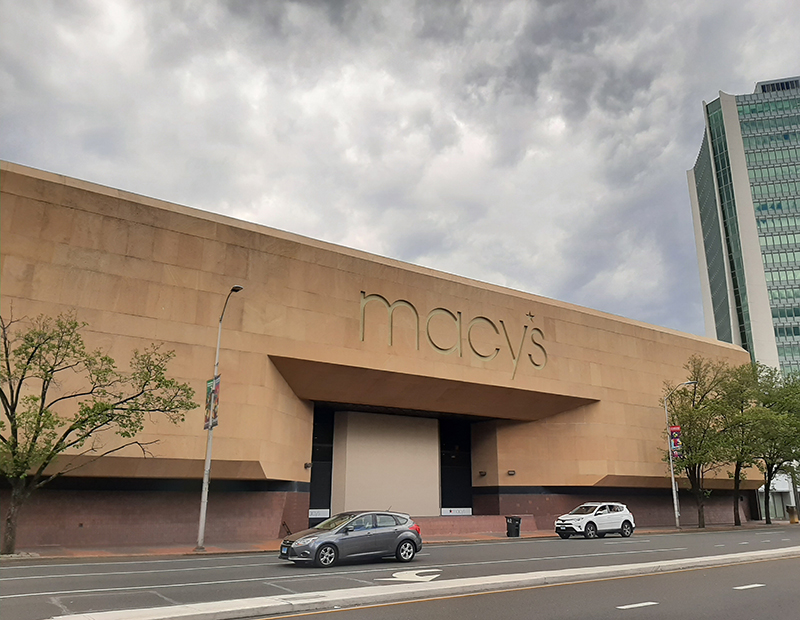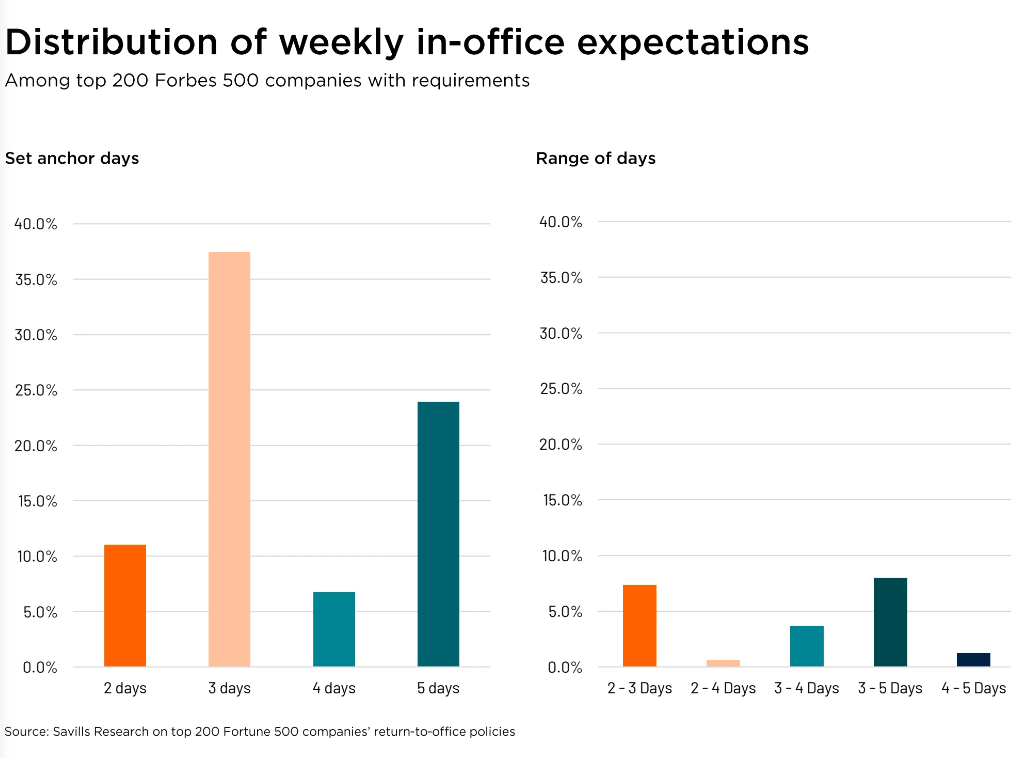Macy’s Starts Reopening Amid Department Store Woes
The chain is welcoming shoppers to 68 locations this week. How will the department store format fare amid the pandemic’s challenges?
Macy’s Inc. will kick off a phased reopening today, welcoming shoppers into 68 stores in states that have begun to ease retail restrictions. The department store chain plans to reopen stores with reduced hours in Georgia, Oklahoma, South Carolina, Tennessee and Texas, which are allowing select businesses to restart after the coronavirus outbreak prompted sweeping closures across the U.S.
A Macy’s representative confirmed the move to Commercial Property Executive, after it was first reported by The Wall Street Journal. Chief Executive Jeff Gennette told the newspaper that the company expects to reopen all of its roughly 775 stores within six weeks, depending on state and local regulations and the rate of new infections.
READ ALSO: Top US Managers, Owners Share Reopening Strategies
Macy’s is among the first retailers announcing plans to restart in-store operations as more than half of American states move to loosen restrictions imposed by the pandemic. But the Cincinnati-based retailer, already struggling before the crisis, may face an uphill battle to lure customers back, as national jobless claims top 30 million and anxiety about the virus keeps many people at home.
“I don’t know how comfortable people are going to be to go in these stores,” said Joseph French, senior director of the national retail group at Institutional Property Advisors, a division of Marcus & Millichap. “I think Baby Boomers are going to be kind of insane to go out shopping anytime soon.”
“The sooner they (Macy’s) open, the better chance they have,” he added.
Reopening safely
The shutdown orders added stress to a company that, like many other national retailers, was already facing turbulence amid the rise of e-commerce. On February 5, before the response to COVID-19 shut down much of the U.S. economy, Macy’s announced it was closing 125 underperforming stores across 19 states as part of a three-year turnaround strategy. S&P Global Ratings downgraded the company’s credit to “junk” status in the same month, citing a weaker outlook for operating performance.
Macy’s preemptively shuttered all 775 of its locations on March 17 in order to curb the spread of the virus. The company initially planned to reopen on March 31, but stores remained closed as the federal government extended social distancing guidelines.
About a quarter of the first batch of stores to reopen are located in malls and outlet centers owned by Simon Property Group Inc., which announced it would reopen 49 properties. The reactivated stores must meet or exceed health and safety standards, according to a business update released by Macy’s, including the installation of sneeze guards and social distancing reminders throughout the store.
Sanitizer depots will be installed in high-traffic areas such as entrances, escalators, elevators and points of sale. Staff will be subjected to wellness checks before starting work and will be provided with company-issued face masks to wear at all times.
Industry struggles
Safety measures notwithstanding, virus worries will likely keep a percent of Americans away from brick-and-mortar stores for a while. A recent survey by health-care technology firm Vital Vio suggests that 40 percent of U.S. adults plan to avoid public spaces unless “absolutely necessary” after the pandemic has petered out.
J.Crew Group, which operates the J.Crew and Madewell clothing brands, announced today that its parent company has filed for bankruptcy protection, becoming the first large U.S. retailer to do so during the COVID-19 crisis.
The pain in the department store industry is especially severe. A new report by Green Street Advisors, a research and advisory firm, forecasts that more than 50 percent of department stores anchoring U.S. malls will close permanently by the end of next year, according to CNBC. About 60 percent of the roughly 1,000 malls still open in the country are anchored by department store retailers such as Macy’s.
Neiman Marcus Group is reportedly preparing to file for bankruptcy protection after being forced to temporarily shutter all 43 of its Neiman Marcus locations, as well as Last Call Bergdorf Goodman stores, according to Reuters.
Mass closures of department stores will have ripples effects for other retailers. “The anchor stores hold the smaller stores together,” said Jonathan Hipp, principal & head of the U.S. Net Lease Group at Avison Young. “Customers don’t want to shop in a mall where the department store is dark.”
French said that the fate of Macy’s will hinge in large part on its success in adopting omnichannel retail. Target, which has remained open through the epidemic, is doing an “incredible job with e-commerce,” he noted. The discount retailer offers contactless drive-up pickup for customers that order online.
“The guys that figure out how to use e-commerce, they will survive,” he added. “People still want to shop at brick-and-mortar stores.”









You must be logged in to post a comment.